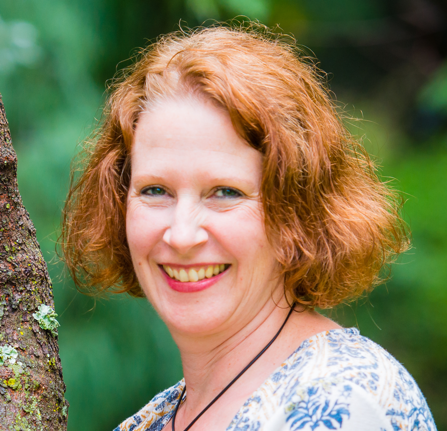
Greetings! I am Beverly Peters, an assistant professor of Measurement and Evaluation at American University. I have over 25 years of experience teaching, researching, and designing, implementing, and evaluating community development and governance projects, mainly in southern Africa.
This year’s AEA Conference theme, Speaking Truth to Power, addresses the heart of a concern that I have considered for years. I have found from my work in Africa that as an evaluator, by nature I leverage a certain amount of unwelcome power in my interactions with stakeholders. I have spent more than two decades asking how I can better understand that power, and mitigate it so that I can hear the truth from stakeholders.
I realized this power of the evaluator, first when I was conducting my PhD dissertation research in two villages in South Africa, and later as I continued microcredit work in the region. Issues of racial and economic privilege permeated my work in an environment emerging from more than four decades of apartheid. How could I ensure that stakeholders would not be silenced by that power? How could I ensure that the messages that stakeholders gave me were not distorted? While working on microcredit projects, I used ethnographic research methods and intercultural communication skills to break down power relationships. Although it was time consuming, ethnographic story telling helped to give my work perspective, and rural villagers voice.
The position of power and privilege has a host of facets to consider, some of which are not easily addressed. Many of these are related to the nature of the evaluator/stakeholder relationship, as I saw in my early work in South Africa. For years since then, I have also recognized that who I am as a person and an evaluator—my gender, age, nationality, and race, just to name a few attributes—impacts the data that I collect and the data to which I have access. This position of privilege, together with the attributes from above, can prevent evaluators from speaking truth to power.
Hot Tips:
How can I begin to break down this unwelcome position of privilege and address these inherent challenges, so that I can find ways to speak truth to power?
- Keep a personal journal during every project. This will help you to be self reflective of who you are as a person and an evaluator, and help to identify how data might be impacted.
- Craft a strong Evaluation Statement of Work that guides the evaluation and anticipates power relationships in the evaluand.
- Secure a diverse evaluation team that includes local experts that will contribute to data collection, dialogue, and understanding.
- Develop intercultural communication skills and use qualitative data collection techniques to uncover the emic, or insider, values of the stakeholder population.
My experiences have shown that being self reflective, having a strong evaluation plan and a diverse evaluation team, and collecting emic data can go a long way in identifying, understanding, and presenting insider values that can challenge the bonds of power over time.
Do you have questions, concerns, kudos, or content to extend this aea365 contribution? Please add them in the comments section for this post on the aea365 webpage so that we may enrich our community of practice. Would you like to submit an aea365 Tip? Please send a note of interest to aea365@eval.org. aea365 is sponsored by the American Evaluation Association and provides a Tip-a-Day by and for evaluators.

Pingback: Mentoring Future Evaluators by Beverly Peters · AEA365